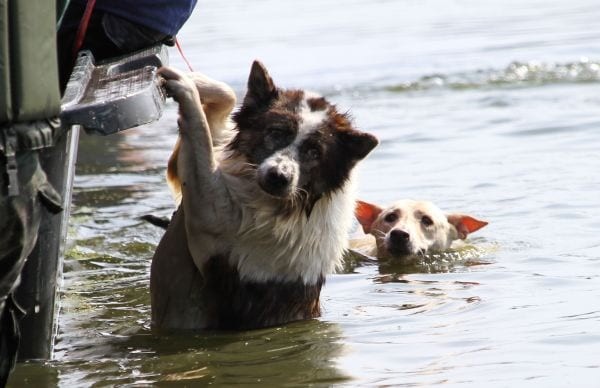Deprecated: Creation of dynamic property ET_Builder_Module_Comments::$et_pb_unique_comments_module_class is deprecated in /home4/readynow/public_html/wp-content/themes/Divi/includes/builder/class-et-builder-element.php on line 1425
Disasters and Household Pets
Disasters Overshadow the Safety of Household Pets
While watching the recovery of the historic Maui town of Lahaina after the tragic fires of August 8th, 2023, we know this is the worst natural disaster in Hawaii’s history. But there’s more than the loss of human life, there’s more. The recent estimate of 3,000 animals lost or missing following the Maui wildfires, is eye-opening. Of the household animals found, I watched brief national news coverage of pets in Maui with multiple burns, which resonated with me as often-overlooked casualties with the increase of global disasters.
Households with pets face unique challenges during disasters and emergencies. The presence of pets adds complexity to evacuation and emergency response efforts. Here are some important common-sense considerations for households with pets during disasters:
1. Emergency Kits for Pets. Just like you prepare an emergency kit for yourself and your family, it’s essential to have an emergency kit for your pets. This kit should include pet food, water, medication, veterinary records, a leash, collar, carrier, bedding, and any other necessary supplies.
2. Identification. Although this is basic advice, please ensure your pets are properly identified with collars and tags that include up-to-date contact information. Microchipping is also recommended, as it provides a more permanent form of identification.
3. Evacuation Plans. When creating your family’s emergency evacuation plan, include your pets in the process. Know where you can take your pets during an evacuation, such as pet-friendly shelters, hotels, or the homes of friends and family. Not all shelters accept pets, so research pet-friendly options in advance.
4. Transportation. Have a plan for transporting your pets safely. If you have multiple pets, ensure you have enough carriers or crates to accommodate them. Practice getting your pets into carriers or vehicles to minimize stress during an actual emergency.
5. Health and Medications. Keep a copy of your pets’ medical records, including vaccination history and any medical conditions. Have a supply of any necessary medications, along with instructions on administration.
6. Stress and Anxiety. Disasters can be stressful for pets, leading to anxiety and behavioral changes. Prepare to comfort and reassure your pets during these times. Familiar items like blankets, toys, and bedding can provide a sense of security.
7. Communication. Stay informed about local disaster alerts and news. Sign up for emergency alerts that are specific to your area and follow updates from local authorities regarding evacuation orders and shelter information.
8. Training and Socialization. Pets that are well-trained and socialized tend to fare better during emergencies. Basic commands like “come,” “stay,” and “quiet” can be valuable in keeping your pets safe.
9. Local Regulations. Be aware of local regulations and laws regarding pets during emergencies. Some areas might require pets to be leashed or confined in certain situations.
10. Neighbors and Friends. Create a network of neighbors, friends, or family who can help with your pets if you’re unable to get home during an emergency. Exchange contact information and discuss your plans with them.
11. Practice Evacuations. Regularly practice evacuation drills with your pets. This helps them become familiar with the process, making it easier during a real emergency. All actions are easier if practiced and repeated.
12. Emergency Contacts. Keep a list of emergency contacts, including your veterinarian and local animal shelters. They can provide guidance and assistance during disasters.

My wife and I have discussed often that if/when a disaster hits our community, we will not go anywhere without our pets. So please don’t take the safety and well-being of our animals for granted. Include them in your disaster preparedness plans and ensure they have the best chance of staying safe during emergencies.


0 Comments